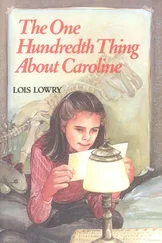CAMERON BEGAN TO SPEND A GREAT DEAL OF HIS FREE TIME with Jeff. Jeff had a small apartment in the Mission District and taught Comparative Religion at a local college. He also volunteered at a small Tibetan monastery, helping with everything from paperwork to fixing leaks to chauffeuring the monks, who had fled from Tibet to a small Himalayan village before arriving here. Some days, Jeff cooked, odd dishes with flat noodles and tofu and seaweed, or mushrooms that plumped up when you soaked them in water, dishes that Cameron was distrustful of at first but grew to like. Jeff was no saint; he tended to impatience and took it hard when things didn’t go the way he wanted them to. But Cameron admired the quickness with which he was able to return to cheerfulness.
Jeff had a way of listening without interruption or advice that Cameron appreciated. As they sat on the balcony of Jeff’s apartment with steaming mugs of coffee, he found himself telling Jeff things he hadn’t shared with anyone. He went backward, beginning with his current job. He was the head security guard for a large bank building downtown, but each day the gun he carried at his hip seemed heavier. He lived in a tiny one-room place in a too-expensive neighborhood so that from his window he would be able to see the ocean. Every morning he tucked his inhaler into a pocket and went for a run. With the wind whistling in his ears, he could forget the decisions he regretted. He had to take pills at night to sleep. He hated insomnia but feared sleep because of the nightmares. None of his activities since he left the army-helping at the hospice, serving food in soup kitchens, donating money to organizations that rescued abused children-had stopped the nightmares. The worst was that of a tiny child afloat in an oval room. The boy would open his black eyes and look at Cameron without reproach, and that was the hardest thing.
Cameron told Jeff about his deployment to hot, mosquito-infested countries supposedly threatened by Communism, where he had been feared and detested because of his uniform. He described the men he had killed-sometimes apathetically, because their lives hadn’t seemed as real as his own. Jeff grew white around the mouth, but he put a hand on Cameron’s shoulder and left it there.
When Cameron had told Jeff everything he could remember, all the way back to his parents’ death in a car crash when he was twelve, he asked about Imani’s curse. Jeff didn’t believe in curses, but he did believe in consequences. He felt that Cameron had done what he could to expiate his wartime acts, but the abortion was unfinished business.
Cameron knew he couldn’t go looking for Imani to ask forgiveness. She was probably married; his reappearance would cause more harm than good. He was too old and set in his ways to adopt a child and become a full-time parent. Then Jeff recalled that the monks had spoken of orphanages in the hills of India. What if Cameron contacted one and sponsored a boy? When the time was right, he could visit him. Perhaps when Cameron saw this child in person, when he caught hold of his hand and felt the metta that upholds the universe flowing between them, he would be healed.
Buoyed by new hope, Cameron contacted the orphanage. They were slow to respond; he had to stop himself from sending reminders, from taking a plane to the nearest city and hiking up to the gates. To succeed, his offer must appear to be a casual act of philanthropy, not a desperate yearning. (The authorities were cautious; Jeff had told him stories about foreigners and child trafficking that explained why.) Finally the orphanage sent a photograph, along with details. Not a boy, as Cameron had requested, but a scrawny girl left outside their gates a few years back. It did not matter. As soon as he saw the blurry black-and-white picture in which she wore a too-large frock and squinted into sunlight, he knew she was the one.
He sent in the necessary money to become her sponsor and requested permission for a visit. But the orphanage informed him that they did not want to rush things. People sometimes tired of their charity, and if the children had had contact with them, they felt additionally rejected. Cameron could write letters to Seva-that was the girl’s name. They would be translated and read to her. In a year or two, when she learned to write, she would send him notes in Hindi. Meanwhile, could he fill out the enclosed forms for a background check and have recommendation letters sent directly to the orphanage?
Impatience-and that old anger-had boiled up in Cameron, but he followed the instructions. Each month he wrote to Seva. Each year, the orphanage sent him two photos of her, taken at activities such as lunch or games, which he pored over hungrily. Since last year, he had begun to receive, at random intervals, lined sheets filled with a child’s scrawlings that the owner of his neighborhood Indian grocery deciphered for him. Cameron could tell that Seva had a mind of her own. In addition to the requisite sentences thanking him and wishing him good health, she informed him of various occurrences in her life: the orphanage cat’s newborn babies had been eaten in the night, by a coyote, the cook said; her friend Bijli had ventured into the bushes at the edge of the playing field in spite of being warned and now had a terrible itch; she had done well in most of her exams except math, which was very difficult for her to understand; Anil had pushed her into the mud when they were marching during P.T. class, so she had pushed him down, too, and the P.T. teacher, Mr. Ahuja, had made them stand out in the yard all afternoon as punishment; Mr. Ahuja had a big mole with hairs sticking out of it on his left cheek.
Cameron was concerned when he heard of the punishment, but Jeff consulted the monks and assured Cameron that this discipline was fairly mild compared to what was customary at many such schools. Still, Cameron thought it was time he went and saw Seva. Perhaps he would have a little discussion with Mr. Ahuja while he was there. He wrote a stern letter to the orphanage, hinting that he might switch his support to a more forthcoming organization. The orphanage sent a speedy reply: Mr. Grant was of course welcome to visit. When Cameron informed Seva, he was coming, he received an ecstatic note listing all the things she would take him to see once he arrived. He carried it around in his wallet. He applied for an indefinite leave from work and for a one-year visa from the Indian government. He suspected that, as a single male, and an African American at that, he would never be given custody of Seva. But as he scoured Toys “R” Us, filling his suitcase with gifts he thought an eight-year-old would like, he wondered if he might just stay on in the hills. Perhaps he could persuade the orphanage to fire Mr. Ahuja and take him on as the P.T. teacher?
Then the earthquake struck and-
It was as though the giant in the earth had heard Cameron speak his name. Before he could complete his sentence, before his listeners could compare his story to theirs, before they could feel admiration or sorrow or thankfulness, the building shuddered and groaned. Something crashed upstairs, and above their heads a ripple went through the ceiling as though it were made of paper.
“Aftershock!” a voice yelled. Someone started to scream. Someone else was crying. One man began a cryptic prayer, “God, let it end, let it just end fast!” As she plunged through water, making for a doorway, Uma wondered, What did the praying man want finished-the earthquake, this imprisonment, or their lives? Wait a minute, she wanted to protest. I haven’t told my story yet .
In her doorway, there was only one other person: Mr. Pritchett, who had abandoned the shawl Tariq had loaned him and was shivering in his underwear. Stripped, he was a lot smaller than Uma had taken him to be. He held on to both doorjambs with outstretched arms, his limbs thin and ropy like those of aged Christian martyrs in medieval paintings. Uma had to duck under his armpit to find shelter. The water came halfway up their thighs, and as soon as that the building stopped shaking, Uma became aware that her legs were growing numb from the cold water, though her arm still throbbed. She considered submerging it in the water. Then it struck her that there should have been another person in her doorway. Peering through the gloom, she knew who it was and called his name. Cameron! Cameron!
Читать дальше












